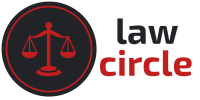Non-English Speakers and Pedestrian Accidents: Accessing Legal Help
by Ayden

Learn how non-English speakers can access legal assistance after pedestrian accidents. Discover key steps, resources, and expert advice to navigate legal proceedings effectively.
Introduction:
Pedestrian accidents can be traumatic, especially for non-English speakers who may face additional challenges in accessing legal help. In this comprehensive guide, we’ll explore essential steps and resources tailored to assist non-English speakers in navigating the legal process following pedestrian accidents. From understanding their rights to finding reputable legal representation, we aim to empower individuals with the knowledge and support they need to seek justice and compensation.
1. Understanding Pedestrian Rights in Traffic Incidents
Pedestrians have specific rights when involved in traffic accidents, regardless of their language or cultural background. It’s crucial to understand these rights to ensure fair treatment and just compensation in legal proceedings.
Pedestrians have the right to use crosswalks safely and expect motorists to yield to them. Additionally, drivers are legally obligated to exercise caution and adhere to traffic laws to prevent accidents involving pedestrians.
2. Identifying Language Barriers in Legal Proceedings
Language barriers can pose significant obstacles for non-English speakers seeking legal help after pedestrian accidents. From understanding legal documents to communicating with lawyers and insurance companies, language differences can complicate the process and hinder access to justice.
3. Importance of Multilingual Legal Assistance
Seeking legal assistance from professionals fluent in the individual’s native language is paramount. Multilingual lawyers or interpreters can bridge the communication gap, ensuring that non-English speakers fully comprehend their rights, options, and legal proceedings.
4. Steps to Take Immediately After a Pedestrian Accident
In the aftermath of a pedestrian accident, taking prompt and decisive action is crucial to protect one’s rights and gather essential evidence. Non-English speakers should:
- Seek medical attention: Prioritize medical care for any injuries sustained in the accident, regardless of language barriers.
- Document the scene: Take photographs, gather witness contact information, and note relevant details such as weather conditions and traffic signals.
- Contact law enforcement: Report the accident to local authorities, ensuring that language interpretation services are available if needed.
5. Accessing Legal Resources for Non-English Speakers
Numerous organizations and legal aid services cater to non-English speakers facing legal challenges, including pedestrian accidents. These resources offer invaluable support in navigating complex legal processes and advocating for the rights of individuals from diverse linguistic backgrounds.
6. Finding Reputable Legal Representation
Choosing the right legal representation is paramount in achieving a favorable outcome in pedestrian accident cases. Non-English speakers should seek reputable law firms or attorneys experienced in handling cases involving language barriers and cultural nuances.
7. Overcoming Cultural Barriers in Legal Proceedings
Cultural differences may also impact non-English speakers’ experiences in legal proceedings. Sensitivity to cultural norms and practices is essential for legal professionals representing clients from diverse backgrounds, fostering trust and effective communication.
8. Understanding Compensation and Legal Options
Non-English speakers should be aware of their entitlements to compensation for damages such as medical expenses, lost wages, and pain and suffering resulting from pedestrian accidents. Understanding legal options and potential outcomes empowers individuals to make informed decisions about pursuing legal action.
9. Frequently Asked Questions (FAQs)
FAQ 1: What should I do immediately after a pedestrian accident?
Seek medical attention, document the scene, and report the accident to authorities.
FAQ 2: How can language barriers affect my ability to seek legal help?
Language barriers can complicate communication with lawyers and understanding legal documents.
FAQ 3: Where can I find legal assistance in my native language?
Numerous organizations and legal aid services offer multilingual support for non-English speakers.
FAQ 4: How do I choose the right legal representation?
Look for reputable law firms or attorneys experienced in handling cases involving language barriers.
FAQ 5: What compensation am I entitled to after a pedestrian accident?
Compensation may include medical expenses, lost wages, and pain and suffering, among other damages.
FAQ 6: How long do I have to file a legal claim after a pedestrian accident?
The statute of limitations varies by jurisdiction, so it’s essential to consult with a lawyer promptly.
Conclusion:
Navigating legal proceedings after a pedestrian accident can be daunting, especially for non-English speakers. However, with the right knowledge, resources, and legal representation, individuals can overcome language barriers and access the support they need to seek justice and fair compensation. By understanding their rights, taking decisive action, and leveraging multilingual legal assistance, non-English speakers can navigate the complexities of the legal system with confidence.
Learn how non-English speakers can access legal assistance after pedestrian accidents. Discover key steps, resources, and expert advice to navigate legal proceedings effectively. Introduction: Pedestrian accidents can be traumatic, especially for non-English speakers who may face additional challenges in accessing legal help. In this comprehensive guide, we’ll explore essential steps and resources tailored to assist…
Recent Posts
- Grocery Store Slip and Fall Accidents: Common Hazards and Legal Options
- Exposure to Toxic Substances at Work
- Non-English Speakers and Pedestrian Accidents: Accessing Legal Help
- Going to Trial vs. Accepting a Settlement Offer
- Motorcycle Accident Caused by a Commercial Vehicle: Holding Companies
- How Can Family Members Support the Legal Process When Their Loved One Is Injured?
- The Road to Recovery: Legal Support After a Devastating Truck Accident
- Justice for Abuse Survivors: High-Profile Cases that Made a Difference
- Nexium Cancer Lawsuit
- New Balance Lawsuit Balance Athletica
